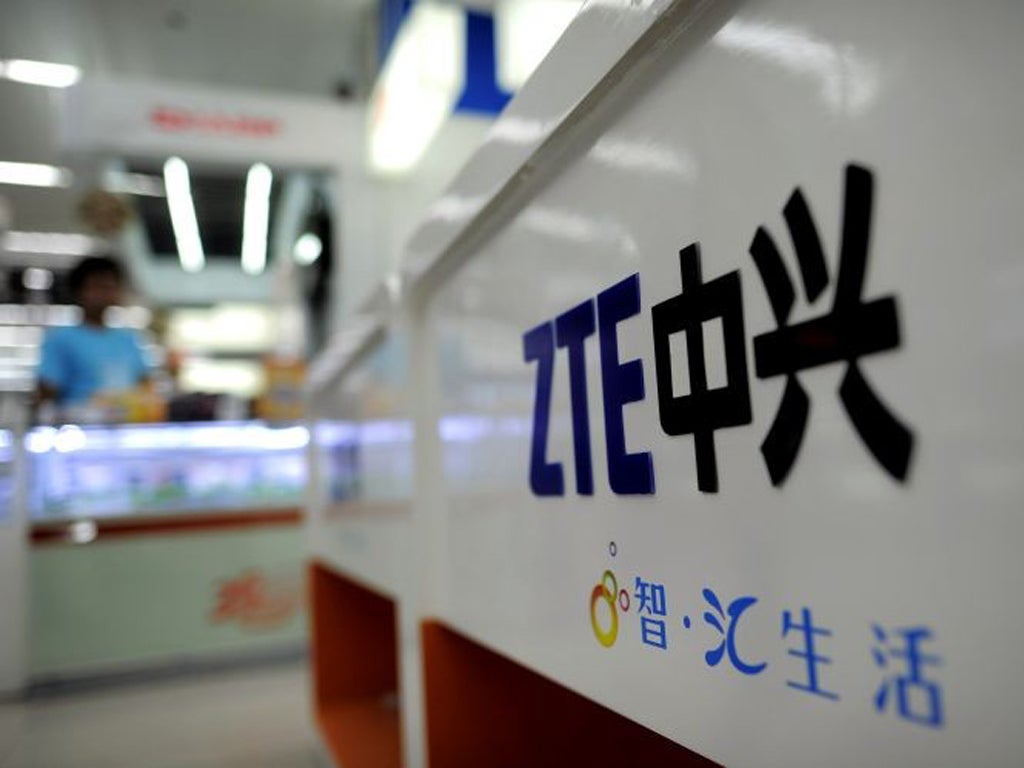US tech firms warned against trading with Chinese businesses

Your support helps us to tell the story
From reproductive rights to climate change to Big Tech, The Independent is on the ground when the story is developing. Whether it's investigating the financials of Elon Musk's pro-Trump PAC or producing our latest documentary, 'The A Word', which shines a light on the American women fighting for reproductive rights, we know how important it is to parse out the facts from the messaging.
At such a critical moment in US history, we need reporters on the ground. Your donation allows us to keep sending journalists to speak to both sides of the story.
The Independent is trusted by Americans across the entire political spectrum. And unlike many other quality news outlets, we choose not to lock Americans out of our reporting and analysis with paywalls. We believe quality journalism should be available to everyone, paid for by those who can afford it.
Your support makes all the difference.American companies have been warned against trading with China's two leading technology firms because they pose a security threat.
The US should block mergers and acquisitions by Huawei Technologies and ZTE, among the world's leading suppliers of telecommunications gear and mobile phones, an official report says.
Reflecting US concern over cyber-attacks traced to China, the report by the House Intelligence Committee also recommends that US government computer systems not include any components from the two firms because that could pose an espionage risk.
"China has the means, opportunity, and motive to use telecommunications companies for malicious purposes," the report says.
The recommendations are the result of a year-long probe, including a congressional hearing last month in which senior Chinese executives of both companies testified, and denied posing a security threat.
A US executive of one of the companies said the firm co-operated with investigators, and defended its business record. Huawei is a "globally trusted and respected company," said William Plummer, vice president for external affairs.
The bipartisan report is likely to become fodder for a presidential campaign in which the candidates have been competing in their readiness to clamp down on Chinese trade violations. Mitt Romney, in particular, has made it a key point to get tougher on China by designating it a currency manipulator and fighting abuses such as intellectual property theft.
The panel's recommendations are likely to hamper Huawei and ZTE's ambitions to expand their business in America. Their products are used in scores of countries, including in the West. Both deny being influenced by China's communist government.
"The investigation concludes that the risks associated with Huawei's and ZTE's provision of equipment to US critical infrastructure could undermine core US national-security interests," the report says.
The report says the committee received information from industry experts and current and former Huawei employees suggesting that Huawei, in particular, may be violating US laws. It says that the committee will refer the allegations to the US government for further review and possible investigation. The report mentions allegations of immigration violations, bribery and corruption, and of a "pattern and practice" of Huawei using pirated software in its US facilities.
Huawei is a private company founded by a former Chinese military engineer, and has grown rapidly to become the world's second largest supplier of telecommunications network gear, operating in more than 140 countries. ZTE is the world's fourth largest mobile phone manufacturer, with 90,000 employees worldwide. While their business in selling mobile devices has grown in the US, espionage fears have limited the companies from moving into network infrastructure.
All major telecommunications firms, including those in the West, develop and manufacture equipment in China and overlapping supply chains require industry-wide solutions, he added. Singling out China-based firms wouldn't help.
AP
Join our commenting forum
Join thought-provoking conversations, follow other Independent readers and see their replies
Comments